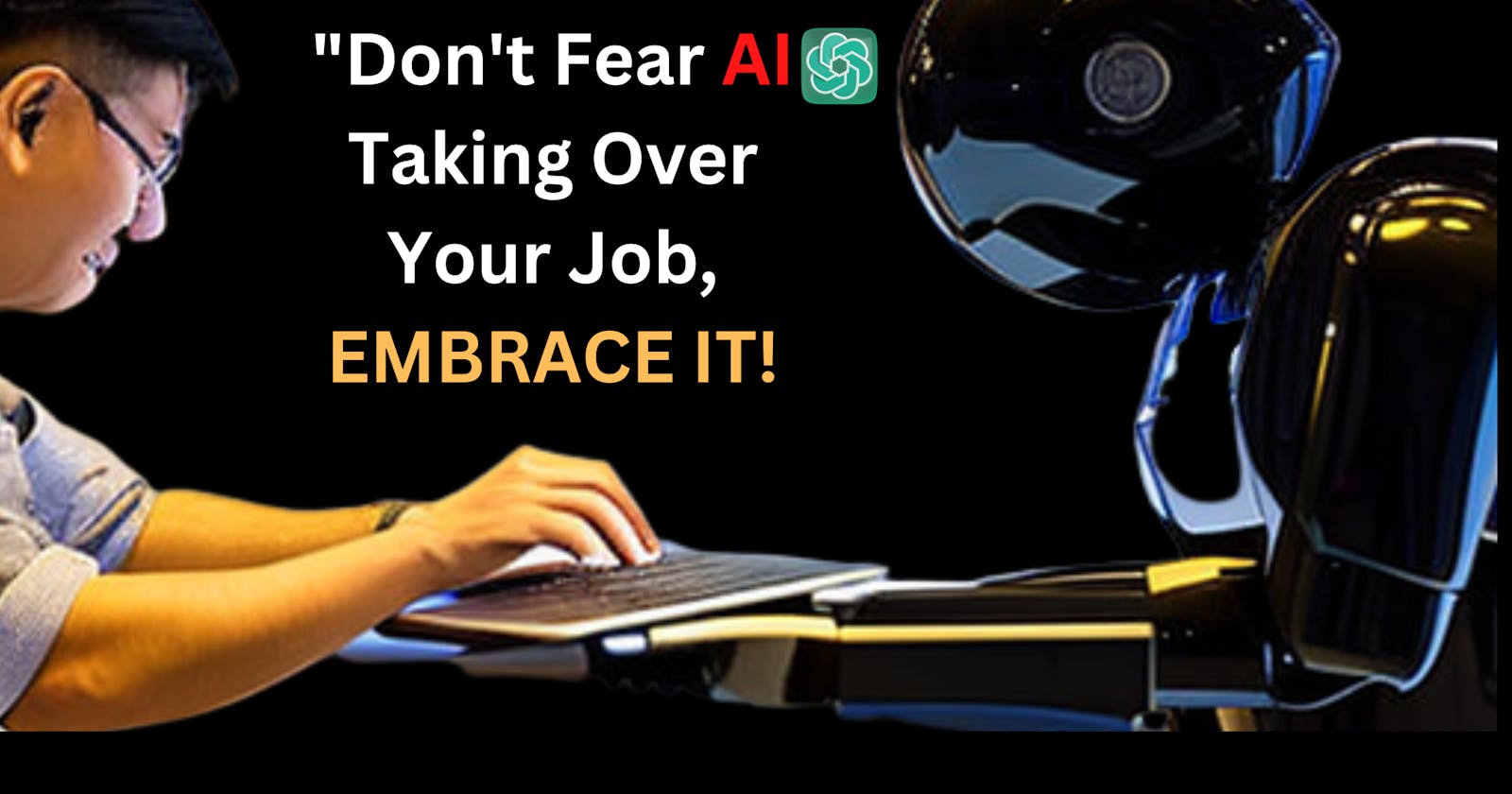Artificial intelligence (AI) is a rapidly growing field that has the potential to revolutionize many aspects of our lives.
From chatbots to self-driving cars, AI is being used to automate a wide range of tasks and make our lives easier. However, there is a common misconception that AI will replace human workers and take over their jobs. In this blog post, I will explore the idea that AI will not replace you, but rather, a person using AI will.
AI is just a tool
First, it's important to understand that AI is not a self-aware being that can make decisions on its own. Instead, it is a set of algorithms and technologies that are designed to perform specific tasks. These tasks are typically ones that are repetitive or require a high degree of accuracy, such as data analysis or image recognition.
AI is not a substitute for human thinking, but it can be a powerful tool to help us think better.
AI is the perfect helping hand
While AI can automate certain tasks, it is not designed to replace human workers entirely. Instead, it is meant to augment the work that humans do and make it more efficient. Feel it can just augment the work.
For example, a doctor may use AI to analyze medical images and identify potential issues, but the final diagnosis will still be made by the doctor based on their expertise and experience. Similarly, a customer service representative may use AI to assist them in answering common questions, but they will still be the ones interacting with the customer and providing personalized assistance.
The future of work is not about replacing human workers with technology, but about creating a symbiotic relationship where technology amplifies human capabilities.
In addition, AI is not capable of replacing human workers in jobs that require creativity, critical thinking, and emotional intelligence. These are abilities that AI simply cannot replicate, and they are essential for many roles in fields such as art, design, and management.
AI can also make mistakes like human
Furthermore, AI is not a magic wand that will solve all our problems. It can only be as good as the data and algorithms that it is trained on. There is a significant amount of bias and inaccuracies that can be present in the data, which can lead to incorrect and harmful outcomes. Therefore, it is important to have human oversight and decision making to ensure the AI is being used ethically and responsibly.
AI can never take jobs, instead it will create
Another important aspect to consider is the fact that as AI becomes more advanced and is integrated into various industries, it will also create new job opportunities. As AI takes over repetitive and mundane tasks, it will free up human workers to focus on more complex and creative tasks that require human skills. This shift in the workforce will also require new skills and training for human workers in order to adapt to the changing job market.
Moreover, the integration of AI in the workplace will also lead to increased productivity, efficiency, and cost savings. With AI taking over repetitive tasks, human workers will be able to focus on more value-adding activities, leading to increased productivity. Additionally, AI can process large amounts of data quickly and accurately, which can help companies make better decisions and improve their bottom line.
Conclusion
It's also worth mentioning that AI can also help to empower human workers by providing them with better tools and insights to do their jobs. It can help them to make better decisions and increase their efficiency. For example, a salesperson can use AI to analyze customer data and identify patterns and trends, which can help them to target the most promising leads and close more deals.
In summary, while AI has the potential to automate certain tasks and make our lives easier, it is not designed to replace human workers entirely. Instead, it is meant to augment the work that humans do and make it more efficient. It will also create new job opportunities and require new skills and training for human workers. As AI continues to evolve and become more integrated into various industries, it's important for human workers to adapt and embrace the new technology in order to stay relevant and competitive in the job market.
